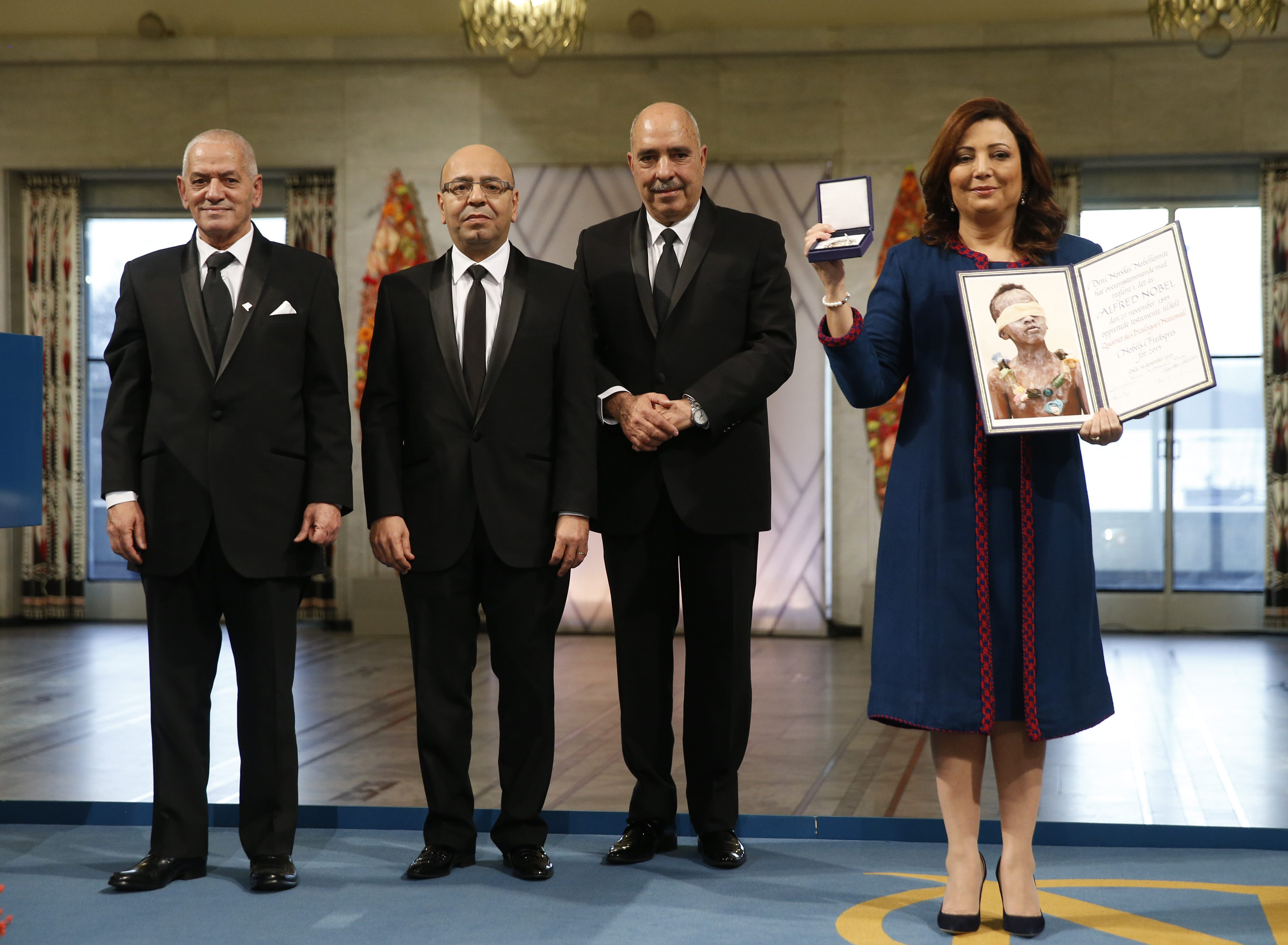National Dialogue Quartet is a coalition of Tunisian businesses, human rights activists, labor unions, and lawyers that won the 2015 Nobel Peace Prize. Formed in the summer of 2013, the coalition helped build and maintain democracy following Tunisia’s Jasmine Revolution of 2010-2011. The largely peaceful popular uprising—named for Tunisia’s national flower—forced the January 2011 resignation of Tunisian President Zine El-Abidine Ben Ali. Ben Ali had ruled the country with virtually no opposition since 1987. The Jasmine Revolution was the earliest and most successful of a series of political and social movements in northern Africa and the Middle East known as the Arab Spring.

The National Dialogue Quartet, which continues to help guide Tunisia’s emerging democracy, includes four key civil organizations. They are the Tunisian Confederation of Industry, Trade, and Handicrafts; the Tunisian General Labor Union; the Tunisian Human Rights League; and the Tunisian Order of Lawyers. In 2013, the group mediated between Tunisian Islamist and secular (nonreligious) parties, establishing a peaceful political process during a period of violence and economic and social unrest. The next year, the group helped establish a constitutional system of government guaranteeing fundamental civil rights.
